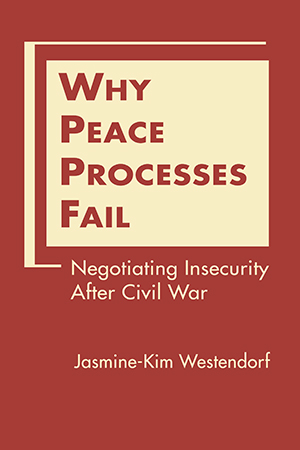Why do so many post–civil war societies continue to be characterized by widespread violence and political instability? Or, more succinctly, why do peace processes so often fail to consolidate peace? Addressing this question, Jasmine-Kim Westendorf explores how the international community engages in resolving civil wars—and clarifies why, despite the best of intentions and the investment of significant resources, external actors fail in their reconstruction efforts and even contribute to perpetuating the very conditions of insecurity and conflict that they are trying to alleviate.
Jasmine-Kim Westendorf is senior lecturer in international relations at La Trobe University.
Also of interest:
Connecting Peace, Justice, and Reconciliation by Elisabeth Porter
"A well-researched, strongly argued, and stimulating new approach to studying peace in the aftermath of war."—Julia Strasheim, Democratization
"An impressive work of academic research that makes insightful recommendations to world leaders in addressing the many internal civil wars of the 21st century. Highly recommended."—Choice
"An outstandingly comprehensive, clear-eyed, and practically very useful analysis.... [It] should be required reading for anyone in the peacebuilding business.... This is a fine example of how academically well-grounded research can at the same time have a real policy impact."—Gareth Evans, Australian National University
"A stimulating read.... Ambitious in scope and with much original insight, this work is an important contribution to an important debate."—Carrie Manning, Georgia State University
"Westendorf offers an important framework for analyzing prospects for state building by the international community."—Desha M. Girod, Georgetown University






